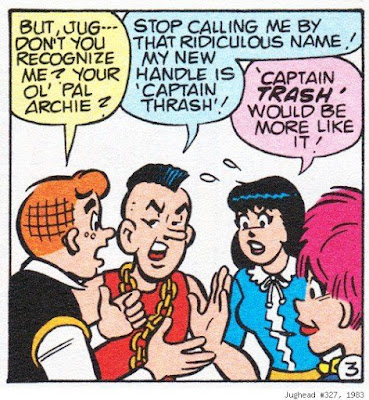ALL ACCESS, OR "JERRY LEE LEWIS: HIS OWN STORY"
Jerry Lee Lewis makes a great subject for biographies. Not
only did he have enough whisky and pill-fueled misadventures to keep things
interesting, but you get to show the battle between being a rock and roller and
the strict Pentecostal religion Lewis was raised in. Nick Tosches used this
struggle as his major theme in his raging, poetic biography, “Hellfire,” which
is probably the only rock biography to have Golgotha and Mammon used as section
headings, or to have references to the Old Testament and Greek and Roman myths next to stories about touring and overdoses,
and make complete sense.
Tosches book ended around the early ‘80s though, and while “Hellfire”
functioned as a biography, it was much more poetic and impressionistic. With
Jerry Lee still inexplicably still alive well into the 2000’s, there was an opportunity
for someone to step in and write a more fact-heavy biography.
Enter Rick Bragg. Bragg has sort of cornered the market on
Southern writing, and while some of his stuff can suffer from “Professional
Southerner” syndrome, when he hits, he can evoke a sense of place, culture, and
community with his writing about poor, underlooked populations. Who better to
pen an updated Jerry Lee Lewis biography?
Well, access can be a hell of a drug.
Well, access can be a hell of a drug.
Bragg opens the book hanging in Jerry Lee’s darkened bullet
hole-ridden bedroom, as Lewis reflects on his life and warily opens up to the
writer. Bragg is clearly in awe of his subject and honestly, it would be hard
not to be. If you’ve ever talked to an old southern guy (like, say my great
uncle Eddie) when they get rolling and telling stories it’s easy to get carried
away on their tone and delivery, even if half the stuff they say contradicts
the other half, and some things you’re pretty sure are outright not true. You get that delivery washing over you from a
legendary musician granting you exclusive access and it’s probably hard to keep
your objectivity.
And you can feel Bragg’s enchantment with Jerry Lee recounting
his stories of pain pills, musical comebacks, fistfights, tax problems, hospitalization,
cousin marriage, touring, and music. Lewis had a lot of darkness in his life – as
well as burying two sons, dude had a temper that wasn’t helped any through booze
and pills and easy access to guns – you could ask the bass player he accidentally shot in the chest.
He also had a young wife who died under mysterious
circumstances shortly after their marriage. There was a Rolling Stone story that
strongly suggested Lewis killed her and had enough pull with the local
authorities to have it covered up. I don’t remember how persuasive the evidence
was, but Bragg gives the story about 4 pages and sums it up with “He has called
it ridiculous, a manufactured lie,” which, uh, of course he would.
Look, I’m sure it’s tough to press an ornery 80 year old gun-crazy
legend on the rumors around his wife’s death, but Bragg doesn’t even really try,
and that just spotlights Bragg’s objectivity problems. Which is a shame,
because Bragg can craft some sentences – he’s not dropping Nick Tosches’ Old
Testament poetry, but he throws down with paragraphs like this:
“One afternoon near the end of it, I told him why I wanted to write his story. I was born in the South in a time of tailfins, when young men with their hair slicked back with Rose hair oil and blast-furnace scars on their necks and arms would thunder down the blacktop with his music pouring from the windows. The great Hank Williams lifted their hearts with “Lovesick Blues” and became a kind of sin eater for their lives and pain.”
Drugs/Sex/Bad Behavior
“One afternoon near the end of it, I told him why I wanted to write his story. I was born in the South in a time of tailfins, when young men with their hair slicked back with Rose hair oil and blast-furnace scars on their necks and arms would thunder down the blacktop with his music pouring from the windows. The great Hank Williams lifted their hearts with “Lovesick Blues” and became a kind of sin eater for their lives and pain.”
Drugs/Sex/Bad Behavior
8/10. Lots of bad behavior, drugs, and booze, but Lewis is
demure about the ladies, saying, “The women...Well, they were always
sympathetic with me,” which is a pretty cool line.
Opens in media res?
Not really – it opens with Bragg starting the interview process and Lewis recounting his early days.
Not really – it opens with Bragg starting the interview process and Lewis recounting his early days.
Namedropping?
Just about everyone makes an appearance here, but the
stories are well integrated.
Buy, Borrow from the Library, or Pass?
Buy, Borrow from the Library, or Pass?
So “Hellfire” and “His Own Story” are completely different styles
and have their own poetry to them. That said, if you have the chance to read
just one, go for “Hellfire.” “His Own Story” is worth a read just for Bragg’s
style, but damn, was that “Hellfire” good.



Comments
Post a Comment